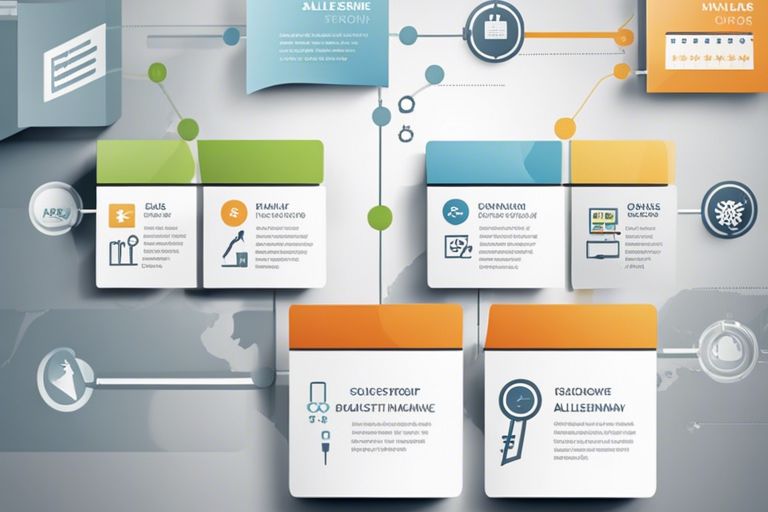With the ever-evolving landscape of sales, it’s crucial for sales professionals to master the art of closing deals effectively. Closing a sale is a critical component of the sales process, and having proven techniques can make all the difference in converting leads into loyal customers. In this informative blog post, we will probe into some successful sales closing techniques that have been time-tested and proven to drive results in the competitive world of sales. Key Takeaways: Understanding Customer Needs: Successful sales closing techniques involves understanding the customer’s needs and addressing them effectively. Building Trust: Building trust with the customer is important in closing a sale. This can be achieved through effective communication and building a good relationship. Creating a Sense of Urgency: Creating a sense of urgency can help in closing a sale. Limited time offers or highlighting scarcity of the product can drive the customer to make a purchase decision. Handling Objections: Effective sales closing techniques involve being able to address and handle customer objections. This requires active listening and providing solutions to overcome objections. Asking for the Sale: One of the most important sales closing techniques is simply asking for the sale. Directly asking the customer if they are ready to make a purchase can often lead to a successful close. The Psychology of Closing Sales Building Trust and Rapport Closing a sale isn’t just about pitching the product or service; it’s about building a foundation of trust and rapport with the customer. People are more likely to buy from someone they like and trust. Demonstrating genuine interest in the customer, listening actively to their needs, and being honest and transparent are key elements in establishing this trust. Recognizing Buying Signals One crucial aspect of successful sales closing is the ability to recognize buying signals from the customer. These signals can be verbal or non-verbal cues indicating the customer’s interest in making a purchase. Pay attention to signs like asking about product specifics, inquiring about pricing, or showing enthusiasm towards the product. To effectively recognize buying signals, salespeople need to be attentive and proactive in their interactions with customers. This involves actively listening to the customer’s needs and preferences, asking open-ended questions to uncover underlying motivations, and observing their body language for signs of interest or hesitation. By being attuned to these signals, sales professionals can tailor their approach and timing to close the sale successfully. Classic Closing Techniques The Assumptive Close Close the deal by assuming the sale has already been made. Some sales professionals find success with this technique by using language that presumes the customer’s agreement, such as “When would you like your delivery?” or “How would you like to pay?” This approach can gently nudge the customer towards finalizing the purchase without applying pressure. The Urgency Close With the urgency close, the salesperson creates a sense of urgency to motivate the customer to make a decision quickly. By emphasizing limited time offers, exclusive deals, or scarce availability, the salesperson prompts the customer to act promptly to secure the opportunity. This technique plays on the customer’s fear of missing out and can be highly effective in closing sales. The Urgency Close leverages the customer’s desire to obtain the product or service before it’s too late. By highlighting the immediate benefits and the potential loss of the opportunity, sales professionals can push customers to make a swift decision. This technique is particularly useful in industries where demand outstrips supply or in seasonal sales where time sensitivity is crucial. Advanced Closing Strategies The Consultative Close Technique Description Asking Open-ended Questions Engage the prospect to uncover their needs and preferences. Active Listening Show empathy and understanding to build rapport. The Value Proposition Close Technique Description Demonstrating Value Showcasing the unique benefits of the product or service. Overcoming Objections Addressing concerns to highlight the value proposition. The Consultative Close Advanced sales professionals often use the consultative close to tailor their pitch to the specific needs of the prospect. By asking open-ended questions and actively listening to the responses, they can better understand the customer’s requirements and provide personalized solutions that meet their expectations. The Value Proposition Close Closing the sale with a strong value proposition involves demonstrating the unique benefits and value that the product or service offers. By showcasing how the offering can solve the customer’s pain points and address their needs, sales professionals can effectively convey why the purchase is a smart investment. For instance, when using the value proposition close, sales reps should emphasize the return on investment for the customer. By quantifying the benefits and showcasing the long-term value of the purchase, they can help prospects see the advantages of choosing their product or service over competitors. Overcoming Objections Addressing Concerns Head-On On your journey to closing a sale, it is inevitable that objections will arise. One effective strategy for overcoming these concerns is to tackle them head-on. By acknowledging the potential issues or hesitations that the customer may have and addressing them proactively, you demonstrate transparency and build trust. This approach allows you to showcase your expertise and offer solutions to any doubts or reservations the customer may have. The ‘Feel, Felt, Found’ Technique Found to be a proven sales closing technique, ‘Feel, Felt, Found’ can help you navigate objections with finesse. When a customer raises a concern, begin by empathizing with their feelings – “I understand how you feel.” Next, relate their concern to a similar situation where others have felt the same way – “Many of our customers have felt that way initially.” Finally, share how those customers ultimately found the product or service valuable – “What they found was that after trying it, their initial concerns were resolved and they saw the benefits.” A valuable aspect of the ‘Feel, Felt, Found’ technique is its ability to validate the customer’s concerns while gently guiding them towards a positive resolution. This structured approach can turn objections into opportunities to provide personalized solutions and ultimately close the sale successfully. Summing up With this
What is the importance of building rapport with clients in sales?
Over the course of any sales process, establishing a strong and genuine connection with your clients is paramount for achieving success. Building rapport goes beyond merely making a sale; it involves creating a foundation of trust, understanding, and mutual respect that can lead to long-lasting relationships and repeat business. By taking the time to connect with clients on a personal level, sales professionals can better comprehend their needs, provide tailored solutions, and ultimately increase customer satisfaction and loyalty. In this blog post, we will investigate into the significance of building rapport with clients in sales and explore the various benefits it can bring to both the salesperson and the client. Key Takeaways: Establishes Trust: Building rapport allows clients to feel comfortable and trust you, making them more likely to do business with you. Enhances Communication: It helps in understanding the client’s needs and preferences, facilitating better communication and a stronger sales pitch. Creates Long-Term Relationships: Building rapport fosters loyalty and repeat business, leading to long-term relationships with clients. Increases Sales Opportunities: Clients are more likely to make a purchase when they have a positive relationship with the salesperson, increasing sales opportunities. Differentiates You from Competitors: Strong rapport with clients sets you apart from competitors and gives you an edge in the sales process. The Role of Trust in Sales Success Building Trust with Prospective Clients Building trust with prospective clients is a crucial step in the sales process. An initial connection based on trust lays the foundation for a long-term relationship, increasing the likelihood of successful sales outcomes. By demonstrating reliability, integrity, and genuine interest in meeting the client’s needs, sales professionals can establish trust and credibility, ultimately enhancing their sales effectiveness. The Impact of Trust on Sales Outcomes For sales professionals, trust is the cornerstone of successful sales outcomes. When clients trust a salesperson, they are more likely to engage with the sales process, share information openly, and make purchasing decisions based on the relationship rather than price alone. This trust leads to increased customer loyalty, higher conversion rates, and ultimately, a more profitable and sustainable sales pipeline. This trust is not built overnight; it requires consistent effort, transparency, and a customer-centric approach. By prioritizing trust-building activities in sales interactions, professionals can differentiate themselves in a competitive market and solidify long-term client relationships that lead to continued success. Strategies for Establishing Rapport Effective Communication Techniques The key to building rapport with clients in sales is through effective communication techniques. Any successful salesperson knows that listening actively, asking relevant questions, and mirroring the client’s communication style are crucial components of establishing a connection. It’s imperative to demonstrate genuine interest in the client’s needs and concerns to build trust and credibility. Personalization and Empathy in Sales Interactions Personalization and empathy play a significant role in creating meaningful sales interactions. Any sales professional should strive to understand the client’s unique preferences, challenges, and goals. By showing empathy towards their situation, you can create a more personalized experience that resonates with the client on a deeper level. With personalization, you can tailor your approach to address the specific needs of the client, making them feel valued and understood. Empathy allows you to connect emotionally with the client, showing that you care about their success and well-being. These qualities are imperative for establishing long-term relationships built on trust and mutual respect. Maintaining Long-Term Client Relationships The Importance of Consistency in Follow-Up For sales professionals, staying in touch with clients is necessary for nurturing long-term relationships. Consistent follow-up demonstrates your commitment to their needs and shows that you are reliable and trustworthy. It keeps you top-of-mind when they are ready to make a purchase decision or need assistance. By regularly reaching out to clients, you are more likely to understand their evolving preferences and provide tailored solutions. Adapting to Changing Client Needs An integral aspect of maintaining long-term client relationships is the ability to adapt to changing client needs. It is crucial to listen actively to their feedback and anticipate shifts in their requirements. Responding promptly to these changes showcases your dedication to fulfilling their needs and builds a strong foundation of trust. By proactively adjusting your sales approach and offerings based on client feedback, you can ensure that they continue to see the value in your products or services. It is important to regularly assess and reassess your client relationships to identify any changing needs or pain points. By staying abreast of industry trends and market developments, you can better anticipate how to provide added value to your clients. This proactive approach not only strengthens your client partnerships but also positions you as a trusted advisor who is committed to their success. Rapport and Sales Performance Measuring the Impact of Rapport on Sales Metrics Despite the numerous factors that contribute to sales success, building rapport with clients remains a cornerstone of effective selling strategies. Sales professionals who prioritize establishing a strong rapport with their clients tend to outperform their peers in various sales metrics. Rapport-Building as a Competitive Advantage Impact. The ability to connect authentically with clients can set a salesperson apart in a competitive market. Building rapport goes beyond making a sale; it cultivates long-lasting relationships that result in repeat business, referrals, and ultimately, a loyal customer base. Rapport. Sales professionals who excel at building rapport understand the significance of trust and credibility in the sales process. By creating a sense of connection and understanding with their clients, they can navigate objections more effectively, tailor solutions to specific needs, and ultimately close more deals.
What are the most effective sales techniques?
How can I improve my sales skills?
Can you share tips for successful cold calling?
Successfully engaging with potential clients over the phone can be a powerful tool for growing your business. Cold calling may seem daunting, but with the right approach and techniques, you can turn these calls into valuable opportunities. Here are some tips to help you master the art of cold calling and achieve success in generating leads and closing deals. Key Takeaways: Preparation is key: Research your prospects before calling to understand their needs and tailor your pitch accordingly. Have a clear objective: Know what you want to achieve with the call and steer the conversation towards that goal. Be confident and personable: Your tone and attitude can make a big difference in how your call is received. Focus on the prospect’s needs: Listen actively to understand their pain points and offer solutions that address them. Follow up effectively: Keep track of your calls, send thank you notes, and schedule follow-up calls to build relationships with prospects. Preparing for Cold Calls Researching Your Prospects While preparing for cold calls, one of the most crucial steps is researching your prospects. The more you know about the company and the person you are calling, the better equipped you will be to tailor your pitch to their specific needs and pain points. Take the time to explore their website, social media profiles, and any recent news articles to gather valuable insights. Developing a Call Script Cold calling can be intimidating, but having a well-prepared call script can help you stay on track and ensure you cover all important points. Craft a script that includes a strong opening to grab the prospect’s attention, key benefits of your product or service, and effective responses to common objections. Remember to keep the script conversational and flexible to allow for natural flow during the call. Understanding your audience is crucial when developing a call script. Tailor your language, tone, and pitch to resonate with the prospect you are calling. Use the information gathered during your research to personalize your script and demonstrate genuine interest in addressing their needs. By customizing your approach, you can increase the likelihood of a successful cold call. Making the Call Building Rapport Building rapport with your prospect is crucial in cold calling. It sets the foundation for a successful conversation and increases the likelihood of a positive outcome. To establish rapport, start by showing genuine interest in the person you are speaking to. Ask about their day or make a relevant comment about their business to show that you have done your homework. Effective Communication Techniques To effectively communicate during a cold call, listen actively to the prospect’s responses and adjust your approach accordingly. Use a friendly tone of voice, speak clearly and confidently, and avoid industry jargon that may confuse the prospect. Plus, always have a clear objective for the call and be prepared to address any objections or concerns the prospect may have. Handling Objections Anticipating Common Concerns Many successful cold callers find that anticipating common concerns can help them prepare effective responses when objections arise. By identifying potential objections ahead of time, you can tailor your pitch to address these concerns proactively, increasing your chances of a successful outcome. Strategies for Overcoming Resistance Common objections in cold calling often revolve around cost, timing, or the need for the product or service. Handling objections effectively requires active listening, empathy, and providing relevant information to address the prospect’s specific concerns. Strategies for overcoming resistance include acknowledging the objection, asking clarifying questions to understand the root cause, and offering solutions that highlight the value proposition of your offering. Follow-Up Strategies When and How to Follow Up Your follow-up strategy is crucial for the success of your cold calling efforts. An effective follow-up should be done promptly after the initial contact. Set reminders to follow up with prospects who showed interest but did not commit. Personalize your follow-up messages to show genuine interest and value for their time. Keeping Records and Analyzing Performance Keeping detailed records of your cold calling activities and outcomes is crucial for refining your approach and maximizing results. Regularly analyze your performance metrics such as conversion rates, call duration, and response rates to identify patterns and areas for improvement. Use this data to fine-tune your scripts and strategies for better outcomes in future calls. Understanding the trends in your cold calling performance can help you identify which strategies are effective and which need adjustment. By keeping track of key metrics and analyzing them regularly, you can make informed decisions to optimize your cold calling process and increase your chances of success. Advanced Cold Calling Tactics Once again, when it comes to cold calling, having advanced tactics can make all the difference. Below are some tips on how to enhance your cold calling strategy: Leveraging Technology Tip: Use CRM software to manage and track your cold calling efforts efficiently. Benefit: Allows you to personalize your calls, track customer interactions, and follow up effectively. Leveraging Technology Leveraging technology can greatly enhance your cold calling efforts. By using Customer Relationship Management (CRM) software, you can effectively manage and track your calls, personalize your interactions, and improve your follow-up process. This technology enables you to stay organized and make more targeted calls, increasing your chances of success. Cold Calling for Various Sales Stages Tip: Adjust your cold calling approach based on the prospect’s stage in the sales cycle. Benefit: Allows you to tailor your pitch to address the prospect’s specific needs and concerns. Cold Calling for Various Sales Stages Cold calling is not a one-size-fits-all strategy. It’s important to adapt your approach depending on where the prospect is in the sales cycle. By understanding the prospect’s stage, you can tailor your pitch to address their specific needs and concerns. This personalized approach can lead to more meaningful conversations and higher conversion rates. To wrap up With these considerations in mind, following a comprehensive guidelines like the ’20 Cold Calling Tips To Help Improve Your Results in 2024′ can significantly boost your success rates.
What is the importance of building rapport with clients in sales?
Over the course of any sales process, establishing a strong and genuine connection with your clients is paramount for achieving success. Building rapport goes beyond merely making a sale; it involves creating a foundation of trust, understanding, and mutual respect that can lead to long-lasting relationships and repeat business. By taking the time to connect with clients on a personal level, sales professionals can better comprehend their needs, provide tailored solutions, and ultimately increase customer satisfaction and loyalty. In this blog post, we will investigate into the significance of building rapport with clients in sales and explore the various benefits it can bring to both the salesperson and the client. Key Takeaways: Establishes Trust: Building rapport allows clients to feel comfortable and trust you, making them more likely to do business with you. Enhances Communication: It helps in understanding the client’s needs and preferences, facilitating better communication and a stronger sales pitch. Creates Long-Term Relationships: Building rapport fosters loyalty and repeat business, leading to long-term relationships with clients. Increases Sales Opportunities: Clients are more likely to make a purchase when they have a positive relationship with the salesperson, increasing sales opportunities. Differentiates You from Competitors: Strong rapport with clients sets you apart from competitors and gives you an edge in the sales process. The Role of Trust in Sales Success Building Trust with Prospective Clients Building trust with prospective clients is a crucial step in the sales process. An initial connection based on trust lays the foundation for a long-term relationship, increasing the likelihood of successful sales outcomes. By demonstrating reliability, integrity, and genuine interest in meeting the client’s needs, sales professionals can establish trust and credibility, ultimately enhancing their sales effectiveness. The Impact of Trust on Sales Outcomes For sales professionals, trust is the cornerstone of successful sales outcomes. When clients trust a salesperson, they are more likely to engage with the sales process, share information openly, and make purchasing decisions based on the relationship rather than price alone. This trust leads to increased customer loyalty, higher conversion rates, and ultimately, a more profitable and sustainable sales pipeline. This trust is not built overnight; it requires consistent effort, transparency, and a customer-centric approach. By prioritizing trust-building activities in sales interactions, professionals can differentiate themselves in a competitive market and solidify long-term client relationships that lead to continued success. Strategies for Establishing Rapport Effective Communication Techniques The key to building rapport with clients in sales is through effective communication techniques. Any successful salesperson knows that listening actively, asking relevant questions, and mirroring the client’s communication style are crucial components of establishing a connection. It’s imperative to demonstrate genuine interest in the client’s needs and concerns to build trust and credibility. Personalization and Empathy in Sales Interactions Personalization and empathy play a significant role in creating meaningful sales interactions. Any sales professional should strive to understand the client’s unique preferences, challenges, and goals. By showing empathy towards their situation, you can create a more personalized experience that resonates with the client on a deeper level. With personalization, you can tailor your approach to address the specific needs of the client, making them feel valued and understood. Empathy allows you to connect emotionally with the client, showing that you care about their success and well-being. These qualities are imperative for establishing long-term relationships built on trust and mutual respect. Maintaining Long-Term Client Relationships The Importance of Consistency in Follow-Up For sales professionals, staying in touch with clients is necessary for nurturing long-term relationships. Consistent follow-up demonstrates your commitment to their needs and shows that you are reliable and trustworthy. It keeps you top-of-mind when they are ready to make a purchase decision or need assistance. By regularly reaching out to clients, you are more likely to understand their evolving preferences and provide tailored solutions. Adapting to Changing Client Needs An integral aspect of maintaining long-term client relationships is the ability to adapt to changing client needs. It is crucial to listen actively to their feedback and anticipate shifts in their requirements. Responding promptly to these changes showcases your dedication to fulfilling their needs and builds a strong foundation of trust. By proactively adjusting your sales approach and offerings based on client feedback, you can ensure that they continue to see the value in your products or services. It is important to regularly assess and reassess your client relationships to identify any changing needs or pain points. By staying abreast of industry trends and market developments, you can better anticipate how to provide added value to your clients. This proactive approach not only strengthens your client partnerships but also positions you as a trusted advisor who is committed to their success. Rapport and Sales Performance Measuring the Impact of Rapport on Sales Metrics Despite the numerous factors that contribute to sales success, building rapport with clients remains a cornerstone of effective selling strategies. Sales professionals who prioritize establishing a strong rapport with their clients tend to outperform their peers in various sales metrics. Rapport-Building as a Competitive Advantage Impact. The ability to connect authentically with clients can set a salesperson apart in a competitive market. Building rapport goes beyond making a sale; it cultivates long-lasting relationships that result in repeat business, referrals, and ultimately, a loyal customer base. Rapport. Sales professionals who excel at building rapport understand the significance of trust and credibility in the sales process. By creating a sense of connection and understanding with their clients, they can navigate objections more effectively, tailor solutions to specific needs, and ultimately close more deals.
What is the role of emotional intelligence in sales?
You may have heard that emotional intelligence is a crucial factor in the world of sales, but do you truly understand its role and impact? In this blog post, we will investigate into the significance of emotional intelligence in sales and how it can make all the difference in building successful client relationships and closing deals. From navigating challenging conversations to understanding and fulfilling customer needs, emotional intelligence plays a vital role in every aspect of the sales process. Let’s explore why emotional intelligence is a key component for sales professionals looking to excel in their roles. Key Takeaways: Builds trust: Emotional intelligence helps sales professionals establish trust and rapport with customers by understanding their emotions and needs. Effective communication: Salespeople with high emotional intelligence can communicate effectively, listen actively, and tailor their messages to resonate with their audience. Improves relationships: By empathizing with customers, sales professionals can create stronger relationships, leading to better customer retention and loyalty. Manages objections better: Emotional intelligence enables salespeople to handle customer objections and rejections gracefully, turning challenges into opportunities. Boosts sales performance: Sales professionals who leverage emotional intelligence can increase their sales performance, as they can adapt to various situations and customers more effectively. Understanding Emotional Intelligence Components Self-Awareness in Sales Any successful sales professional understands the importance of self-awareness in their interactions with clients. Self-awareness involves recognizing one’s emotions, strengths, weaknesses, and how they impact others. By being in tune with their own emotions, salespeople can better navigate challenging situations, regulate their responses, and build more authentic relationships with clients. Managing Emotions for Sales Success Intelligence is key when it comes to managing emotions for sales success. Sales professionals need to be able to understand and control their emotions effectively to stay focused and productive in high-pressure sales environments. By developing emotional intelligence skills such as self-regulation and resilience, salespeople can handle rejection, overcome obstacles, and maintain a positive attitude throughout the sales process. Understanding the impact of emotions on sales success involves more than just controlling one’s own feelings. It also includes being able to empathize with clients, understand their perspectives, and adapt communication styles accordingly. By demonstrating empathy and emotional intelligence in sales interactions, professionals can build trust, increase customer satisfaction, and ultimately drive sales performance. Application of Emotional Intelligence in Sales Strategies Building Relationships with Clients Even in the fast-paced world of sales, taking the time to build genuine relationships with clients can set you apart from the competition. Emotional intelligence plays a crucial role in understanding client needs, communicating effectively, and building trust. By demonstrating empathy and actively listening to clients, sales professionals can create meaningful connections that drive long-term customer loyalty and repeat business. Navigating Rejections and Setbacks With the inevitable rejections and setbacks that come with sales, emotional intelligence is key to staying resilient and focused on your goals. Handling rejection with grace and professionalism, while maintaining a positive attitude, can turn a setback into an opportunity for growth. It’s important to harness emotional intelligence to stay motivated, learn from mistakes, and continue moving forward in the face of challenges. Sales professionals who possess high emotional intelligence are better equipped to handle rejection and setbacks without letting it affect their confidence or performance. By recognizing their emotions, managing stress effectively, and maintaining a positive mindset, they can navigate the ups and downs of sales with resilience and determination. Emotional Intelligence Training for Sales Professionals Developing Empathy and Active Listening Skills The ability to understand and empathize with clients is crucial in building strong relationships and closing deals in sales. Sales professionals can enhance their emotional intelligence by developing empathy and practicing active listening skills. This involves putting oneself in the shoes of the client, understanding their perspective, and truly listening to their needs and concerns. Through empathy and active listening, sales professionals can build trust, establish rapport, and better address the needs of their clients. Techniques for Emotional Regulation in High-Pressure Sales Environments Sales environments can be high-pressure, requiring sales professionals to manage their emotions effectively to stay focused and perform at their best. Techniques for emotional regulation in such environments include deep breathing exercises, mindfulness techniques, and positive self-talk. By staying calm and composed, sales professionals can make better decisions, think clearly, and communicate effectively even in challenging situations. Emotional intelligence plays a vital role in sales as it helps in understanding client’s needs, managing tough situations, and building trust. By enhancing emotional intelligence through training and practice, sales professionals can improve their sales performance, build stronger relationships with clients, and achieve greater success in their careers. Measuring the Impact of Emotional Intelligence in Sales Performance Emotional Intelligence and Sales Metrics Impactful sales professionals go beyond just meeting targets; they build relationships, understand client needs, and adapt their sales approach accordingly. Emotional intelligence plays a vital role in achieving these goals, as it directly impacts key sales metrics such as conversion rates, customer satisfaction, and repeat business. Case for Emotional Intelligence in Sales Team Development An effective sales team is not just about individual skill sets; it’s about team dynamics and collaboration. Emotional intelligence in sales team development can lead to better communication, conflict resolution, and overall team success. By cultivating emotional intelligence within the team, sales leaders can enhance productivity, morale, and ultimately, the bottom line. Measuring the impact of emotional intelligence in sales team development involves assessing not just individual performance but also team dynamics and overall sales outcomes. By tracking key indicators such as team collaboration, communication effectiveness, and customer feedback, sales leaders can measure the tangible benefits of emotional intelligence within their sales teams. To wrap up To wrap up, emotional intelligence plays a crucial role in sales by helping sales professionals understand and connect with their clients on a deeper level. By being aware of their own emotions and those of others, salespeople can build stronger relationships, improve communication, and ultimately drive more sales. The ability to empathize, communicate effectively, and navigate challenging situations with emotional intelligence can set









